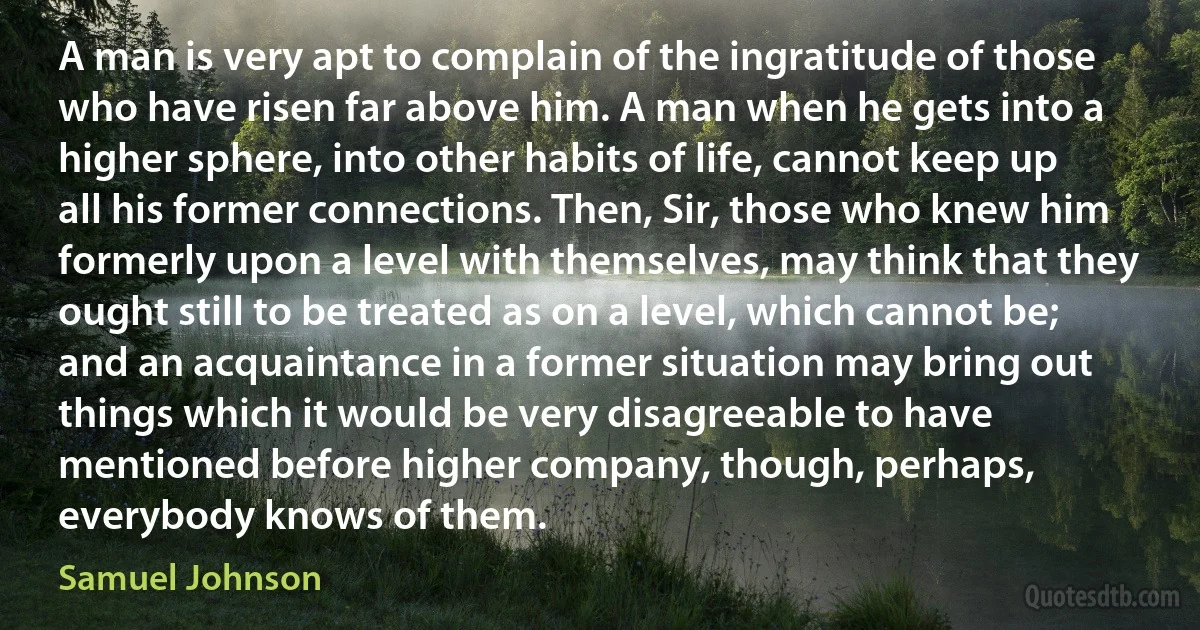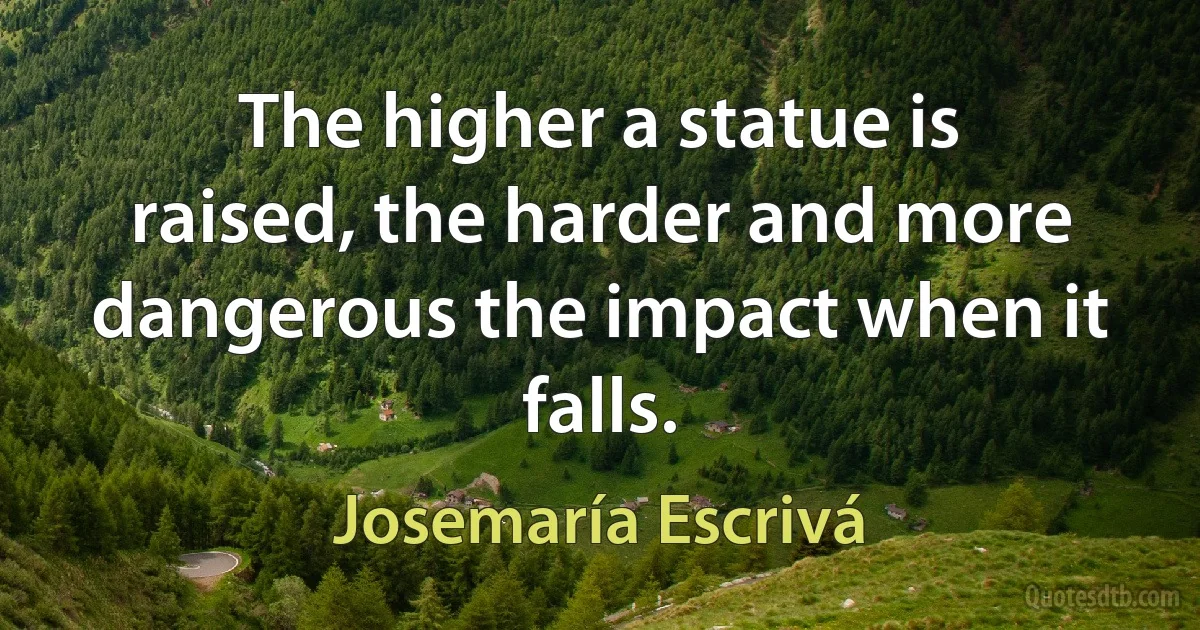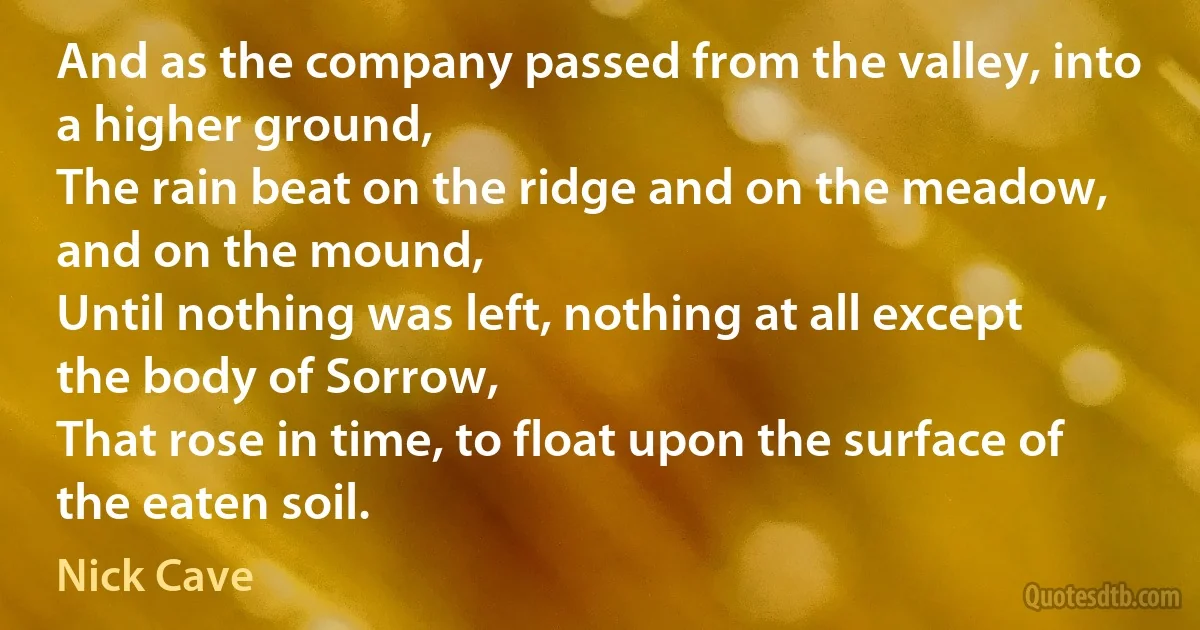Higher Quotes - page 25
Once we see, however, that the probability of life originating at random is so utterly minuscule as to make it absurd, it becomes sensible to think that the favorable properties of physics on which life depends are in every respect deliberate .... It is therefore almost inevitable that our own measure of intelligence must reflect ... higher intelligences ... even to the limit of God ... such a theory is so obvious that one wonders why it is not widely accepted as being self-evident. The reasons are psychological rather than scientific.

Fred Hoyle
Islam is the best, but we Muslims are not the best. The West is neither corrupted nor degenerate. It is strong, well-educated, and organized. Their schools are better than ours. Their cities are cleaner than ours. The level of respect for human rights in the West is higher, and the care for the poor and less capable is better organized. Westerners are usually responsible and accurate in their words. Instead of hating the West, let us proclaim cooperation instead of confrontation.

Alija Izetbegović
Marie falls back upon her idea, obdurately, and says, "A woman only lives by love and for love. When she's no longer good for that she's no longer anything."
She repeats, "You see - I'm nothing any more."
Ah, she is at the bottom of her abyss! She is at the extremity of a woman's mourning! She is not thinking only of me. Her thought is higher and vaster. She is thinking of all the woman she is, of all that love is, of all possible things when she says, "I'm no longer anything." And I - I am only he who is present with her just now, and no help whatever is left her to look for from any one.
I should like to pacify and console this woman who is gentleness and simplicity and who is sinking there while she lightly touches me with her presence - but exactly because she is there I cannot lie to her, I can do nothing against her grief, her perfect, infallible grief.
"Ah!" she cries, "if we came to life again!"

Henri Barbusse
What to children learn at school? They go varying distances in their studies, but at any rate they learn to read, to write and to add - i. e. a number of techniques, and a number of other things as well, including elements (which may be rudimentary or on the contrary thoroughgoing) of scientific' or 'literary culture', which are directly useful in the different jobs in production (one instruction for manual workers, another for technicians, a third for engineers, a final one for higher management, etc.). Thus they learn 'know-how.

Louis Althusser
Both of these measures were on the side of increasing spendable income, though unfortunately they were largely without effect. The tax reductions were negligible except in the higher income brackets; businessmen who promised to maintain investment and wages, in accordance with a well-understood convention, considered the promise binding only for the period within which it was not financially disadvantageous to do so.

John Kenneth Galbraith
I'm basically tired of doing what I have been doing for the last 10 years. My interest level was dipping. I was doing a fairly good job, when compared to others. The standards I have set for myself are higher. When I watched the Broadway show Miss Saigon, I was ashamed of being called an actress. The leading lady's performance was outstanding. I was ashamed that I am in the same profession but could not touch those heights.

Manisha Koirala
Slavery to State and men has disappeared only to make room for slavery to things and Self, to one's own vices and idiotic social customs and ways. Rapid civilization, adapted to the needs of the higher and middle classes, has doomed by contrast to only greater wretchedness the starving masses.

Helena Petrovna Blavatsky
We must mention the higher, nobler wealth, which does not belong to all, but to truly noble and divinely gifted men. This wealth is bestowed by wisdom through the doctrines and principles of ethic, logic and physic, and from these spring the virtues, which rid the soul of its proneness to extravagance, and engender the love of contentment and frugality, which will assimilate it to God. For God has no wants, He needs nothing, being in Himself all-sufficient to Himself, while the fool has many wants, ever thirsting for what is not there, longing to gratify his greedy and insatiable desire, which he fans into a blaze like a fire and brings both great and small within its reach. But the man of worth has few wants, standing midway between mortality and immortality.

Philo
China under the Tang, Sung, and Ming dynasties, the Islamic world from the eighth to the twelfth centuries, and Byzantium from the eighth to the eleventh centuries far surpassed Europe in wealth, territory, military power, and artistic, literary and scientific achievements. Between the eleventh and thirteen centuries, European culture began to develop, facilitated by the "eager and systematic appropriation of suitable elements from the higher civilization of Islam and Bizantium, together with adaptation of this inheritance to the special conditions and interests of the West."

Samuel P. Huntington
Again, there is the illusion of "increased command over Nature," meaning that cotton is cheap and that ten miles of country road on a bicycle have replaced four on foot. But even if man's increased command over Nature included any increased command over himself (the only sort of command relevant to his evolution into a higher being), the fact remains that it is only by running away from the increased command over Nature to country places where Nature is still in primitive command over Man that he can recover from the effects of the smoke, the stench, the foul air, the overcrowding, the racket, the ugliness, the dirt which the cheap cotton costs us.

George Bernard Shaw
Mother India is not a piece of earth; she is a Power, a Godhead, for all nations have such a Devi supporting their separate existence and keeping it in being. Such Beings are as real and more permanently real than the men they influence but they belong to a higher plane, are part of the cosmic consciousness and being and act here on earth by shaping the human consciousness on which they exercise their influence. It is natural for man who sees only his own consciousness individual, national or racial at work and does not see what works upon it and shapes it, to think that all is created by him and there is nothing cosmic and greater behind it.

Sri Aurobindo
I'm against these aggressive tax avoidance schemes but I'm not just against them, this Government has taken a huge amount of steps to legislate and toughen the laws and go after aggressive tax avoidance schemes for the very simple reason that if people go after these schemes and aggressively avoid tax they're making it the case that everyone else has to pay higher taxes as a result so I think we should be very clear, tax evasion is illegal and for that you can be prosecuted, you can go to prison for tax evasion. Tax avoidance is in these cases, very aggressive tax avoidance schemes, they are wrong and we should really persuade not to do them and that's why we have these court cases where the court looks at whether a scheme is really about avoiding tax rather than anything else and the court was very clear in this case.

David Cameron
If you expect manners from modern newspapers you will be sorely disappointed in these democratic days. It is one of the blessings of modern democracy? If you were in America and did not give any interview, even then they would invent one? The press is a public institution; formerly, it was something dignified, but now the newspapers are the correct measure of the futility of human life.... It is the same with all other modern things... the press, the theatre, the radio; they drag down everything to the level of the crowd.... They succeed only if they can pamper the common man's tastes.... It is the same old question of the mass being pulled up by something higher. But, as it always happens, instead of being pulled up it is the mass that pulls everything down to its level....

Sri Aurobindo
Nothing can be more untrue than to pretend that the general religious mind of India has not at all grasped the higher spiritual or metaphysical truths of Indian religion. It is a sheer falsehood or a wilful misunderstanding to say that it has lived always in the externals only of rite and creed and shibboleth. On the contrary, the main metaphysical truths of Indian religious philosophy in their broad idea-aspects or in an intensely poetic and dynamic representation have been stamped on the general mind of the people. The ideas of Maya, Lila, divine Immanence are as familiar to the man in the street and the worshipper in the temple as to the philosopher in his seclusion, the monk in his monastery and the saint in his hermitage. The spiritual reality which they reflect, the profound experience to which they point, has permeated the religion, the literature, the art, even the popular religious songs of a whole people.

Sri Aurobindo
You have spoken much today of my self-sacrifice and devotion to my country. I have heard that kind of speech ever since I came out of jail, but I hear it with embarrassment, with something of pain. For I know my weakness, I am a prey to my own faults and backslidings. I was not blind to them before and when they all rose up against me in seclusion, I felt them utterly. I knew them that I the man was a man of weakness, a faulty and imperfect instrument, strong only when a higher strength entered into me. Then I found myself among these young men and in many of them I discovered a mighty courage, a power of self-effacement in comparison with which I was simply nothing. I saw one or two who were not only superior to me in force and character, - very many were that, - but in the promise of that intellectual ability on which I prided myself.

Sri Aurobindo



